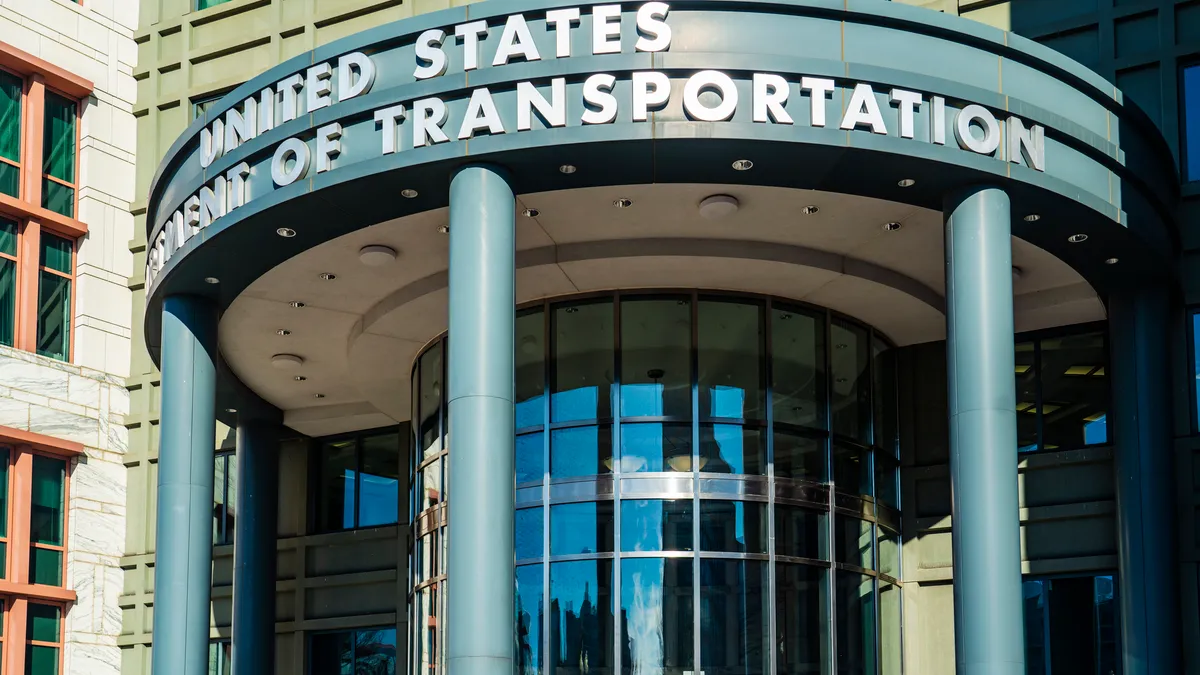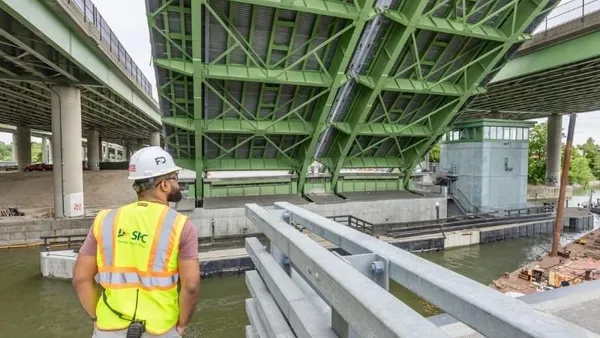Dive Brief:
- The U.S. DOT disbursed $54 million in annual funding for a grant program that will improve transportation efficiency and safety, and has applications for builders, the agency announced on March 14.
- The DOT’s Strengthening Mobility and Revolutionizing Transportation, or SMART grants program, which went into effect in FY2022, will spread money to 34 projects in 22 states, the District of Columbia and Puerto Rico, per the agency. It was established by the $1.2 trillion Infrastructure Investment and Jobs Act, and sets aside $100 million appropriated annually through 2026.
- The program spreads funds in two stages — the March 14 awards are Stage 1 grants, which can provide up to $2 million each and last 18 months. Recipients will be eligible to expand further through Stage 2 grants, which provide up to $15 million and last 36 months, per the department.
Dive Insight:
The SMART program is another tool in the toolbox for the federal DOT to fund advancing technological projects at state DOTs. Other programs include the Federal Highway Administration’s Advanced Digital Construction Management Systems program, which go toward innovating and using new programs on government construction jobs.
In total, the program has so far disbursed $148 million in funding across 93 projects, per the agency.
All applicants need to demonstrate a connection to one of eight technology fields, which are:
- Connected vehicles.
- Delivery/logistics.
- Sensors.
- Systems Integration.
- Coordinated Automation.
- Innovative Aviation.
- Smart grid.
- Traffic signals.
While SMART projects relate mostly to transportation, many touch on construction as well. Examples include:
- The Colorado DOT will create a digital twin of transportation, land use, and infrastructure data to support scenario modeling and infrastructure planning.
- The State Highway Administration of the Maryland DOT will use unmanned drones to collect speed data via to support real-time speed management in work zones, which are dangerous for construction pros.
- The Broward Metropolitan Planning Organization in Florida will develop a digital twin of transportation, land use and infrastructure data to support scenario modeling and infrastructure planning.
- The Wyoming DOT will modernize the work zone data environment and streamline data collection and management.
- The Municipality of Canovanas, Puerto Rico will establish a sensor-based data collection model to inform infrastructure investments and public wayfinding.














